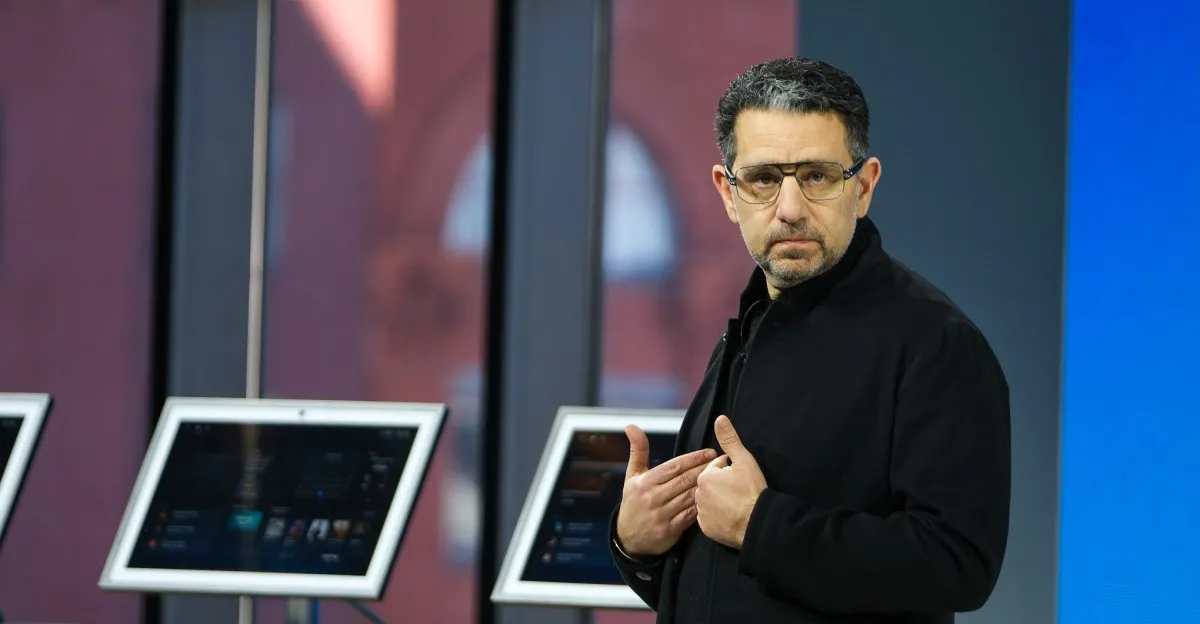
Last week's Amazon press conference brought a surprising twist for tech enthusiasts: instead of the usual barrage of hardware announcements, the company opted for a 70-minute presentation focused predominantly on software innovations. This time, the spotlight was on Alexa Plus, the latest iteration of Amazon's voice assistant powered by generative AI. This strategic move may well be the turning point for Amazon, which has historically prioritized hardware development over software enhancement.
Over the past decade, Amazon has invested heavily in developing various hardware gadgets for Alexa, many of which failed to resonate with consumers. From home robots to indoor cameras, the focus often drifted away from enhancing the core technology of Alexa itself. As a result, the voice assistant has been perceived more as an expensive timer rather than the futuristic personal assistant envisioned by Jeff Bezos, akin to Star Trek’s “Computer.” With the launch of Alexa Plus, Amazon is finally taking significant steps toward realizing this vision.
According to Panos Panay, Amazon’s head of Devices and Services, Alexa has undergone a complete overhaul. "Alexa did need to get better. It did need to grow. It did need to get to the next level," he shared in an interview with The Verge. The new Alexa Plus is designed to be more conversational, proactive, and capable of reasoning and inference. Unlike its predecessor, Alexa Plus can plan dates, book restaurants, text babysitters, create travel itineraries, and even read study guides while quizzing users on the content.
Alexa Plus not only boasts a wide array of new capabilities but also improves upon existing functionalities. Users no longer need to use precise phrasing or repeatedly invoke the word “Alexa” to get responses. The introduction of Experts replaces the former Skills, allowing Alexa to intelligently tap into large language models to fulfill requests—from ordering food to managing smart home devices. Amazon claims to have integrated tens of thousands of APIs and introduced new “agentic experiences” for tasks like booking cleaners or repair services.
As part of this software-focused initiative, Amazon is also launching a revamped Alexa app that will host Alexa Plus on mobile devices, coupled with a new website, alexa.com, where users can interact with the assistant via keyboard. This shift towards enhanced multi-modal capabilities could help transform Alexa from a mere household utility into a truly effective personal assistant.
This renewed focus on software improvement can likely be attributed to Panay's leadership, who has a background in hardware development. His vision is to create products that people are passionate about, emphasizing a consistent design and the importance of screens. Shortly after the conference, Amazon CEO Andy Jassy hinted at the release of “beautiful hardware” this fall, signaling a potential shift toward more aesthetically pleasing devices.
Amazon’s push to enhance Alexa is partly a response to competition from entities like OpenAI’s ChatGPT, Google's Gemini, and Apple’s Siri. For years, Amazon has maintained its position as the leading voice assistant largely due to its extensive interoperability. However, the new Alexa Plus aims to bridge the gap between functionality and user satisfaction—an area where previous iterations may have fallen short.
While the demos showcased at the conference were promising, they remain somewhat controlled, as many of the new features won’t be available until late March at the earliest. Amazon has indicated that not all features will be released simultaneously, with some still in development. A key concern among potential users is the safety of a voice assistant integrated into smart home systems. Panay reassured audiences that while risks exist, Amazon is committed to ensuring that the new Alexa Plus is trained to operate safely in smart home environments.
In summary, the transformation of Alexa into a generative AI-powered assistant marks a pivotal moment for Amazon. By focusing on software improvements and user experience, Amazon is positioning Alexa Plus to be not just a voice assistant but a truly intelligent personal assistant capable of managing various aspects of daily life. As we await the rollout of these promising features, the future of Alexa looks brighter than ever.